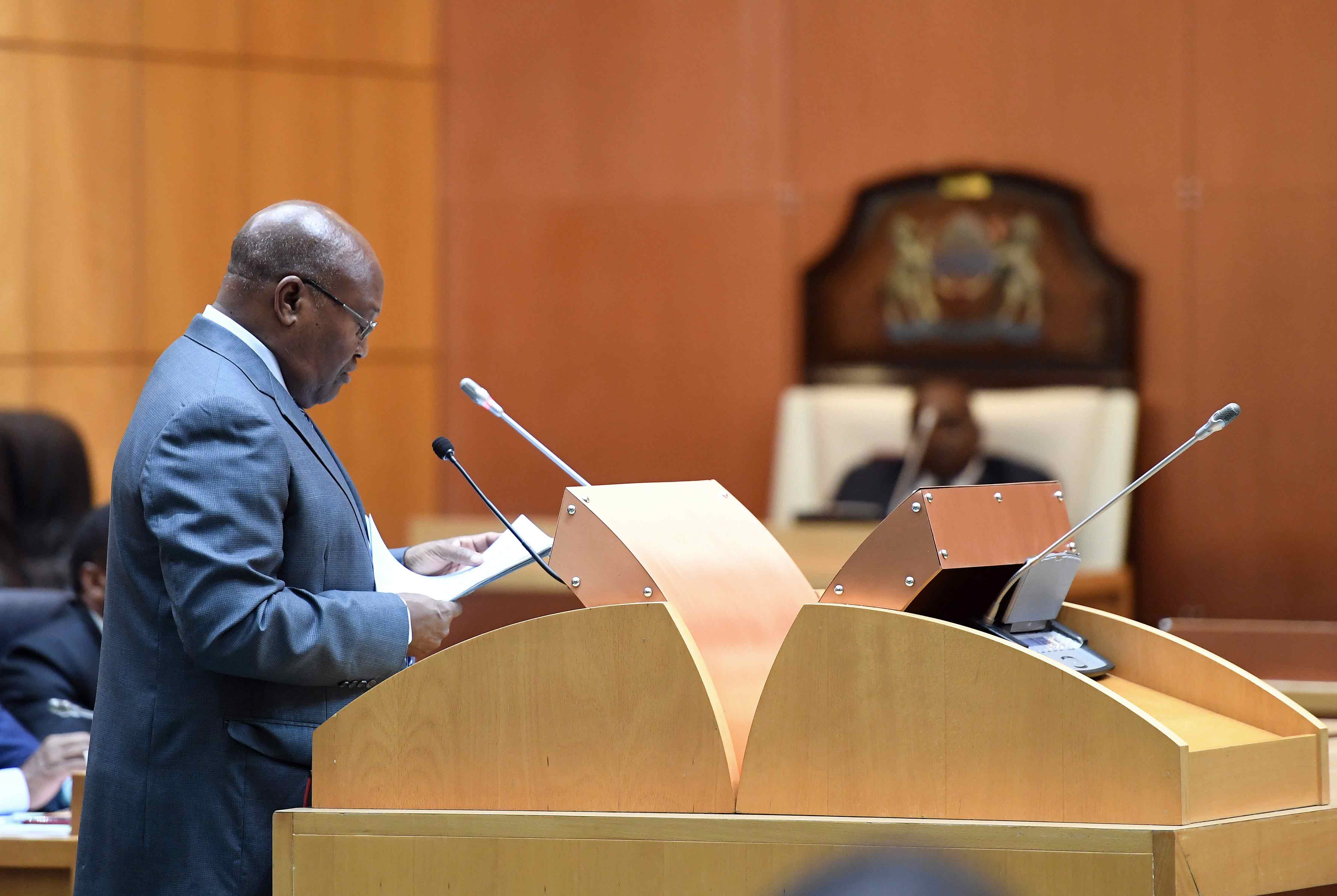- New tax law to address tax avoidance
- Over $50billion looted illegally
GAZETTE REPORTER
Botswana Unified Revenue Service (BURS) is in the process of enacting a legal instrument targeted at curbing illicit financial flows done by large corporations here in the name of transfer pricing, Minister of Finance and Economic Development Kenneth Matambo has revealed.
According to the Finance Minister, in an effort to comply with international standards, and remove any perception that Botswana could be a tax haven, Government has since reviewed the Botswana International Financial Services Centre tax regime which led to the amendment of the Income Tax Act by Parliament in December last year. He said the amended regime has since been assessed by the Organisation for Economic Co- operation and Development (OECD) in January 2019, which declared it not to be harmful.
“The amendment to the Income Tax Act also introduced Transfer Pricing Rules and Thin Capitalisation provisions,” he said, adding that Transfer Pricing Rules guard against attempts by multi-national corporations to minimise their tax liability by transferring profits to low tax jurisdictions in order to pay less tax or where costs are charged to a company in a high tax jurisdiction to reduce profits and thereby pay less tax. Thin Capitalisation is when a company is financed through a high level of debt compared to equity. The Thin Capitalisation provisions seek to restrict the amount of interest on debt, which would reduce a company’s profits and thereby reduce its tax payable. Of late, Government seems determined to address transfer pricing challenges. Bank of Botswana (BoB) has of late been vocal in condemnation of illicit financial flows, leading to billions of Pula being shipped out of Botswana every year.
Joint research by the African Union Commission and the United Nations Economic Commission has found that through Illicit Financial Flows (IFF, Africa loses more than $50 billion annually, 13 percent of the portion sourced for Southern Africa (Botswana included). West Africa, North Africa, Eastern Africa and the Central accounts for 38 percent, 28 percent, 11 percent and 10 percent respectively.
IFF, according to the report, is the money illegally earned, transferred or utilized. The money funds typically originate from three sources: commercial tax evasion, trade misinvoicing and abusive transfer pricing: criminal activities, including the drug trade, human trafficking, illegal arms dealing and smuggling of contraband and bribery and theft by corrupt government officials. The report was released last year.
Among others, tax evasion involves companies inflating operating costs in order to reduce their reported profits. As a concern for Africa, the 2011 Report of the High Level Panel on Illicit Financial Flows from Africa (referred to as the Mbeki Report) focused on the matter, including the steps that must be taken to radically reduce these outflows to ensure that the resources remain within the continent.
The tools of such financial exploitation, commercial tax evasion, trade misinvoicing and abusive transfer pricing, are used by corporate entities to over inflate their operational expenses (most of which is paid to the parent company), to facilitate the declaration of reduced profit margins.
Transfer pricing is mostly rife within the banking and mining sector although it is not only limited to these sectors. Industry observers say, the banks and big financial services companies in Botswana, which are all subsidiaries of international companies have for years now, been typically paying their parent companies for, management services, group business development and sales services, finance and cash flow functions, group Information Technology (IT) services, administration as well as for accounting and financial reporting. The payments which reduce the entities overall profitability are made to internal accounts that further benefit the parent company. Experts also say BURS has to worry about mining companies in Botswana which have been mining for over years, extracting minerals and making revenue but declaring losses, so not to pay tax, while their operational expenses and insider trading are high.




